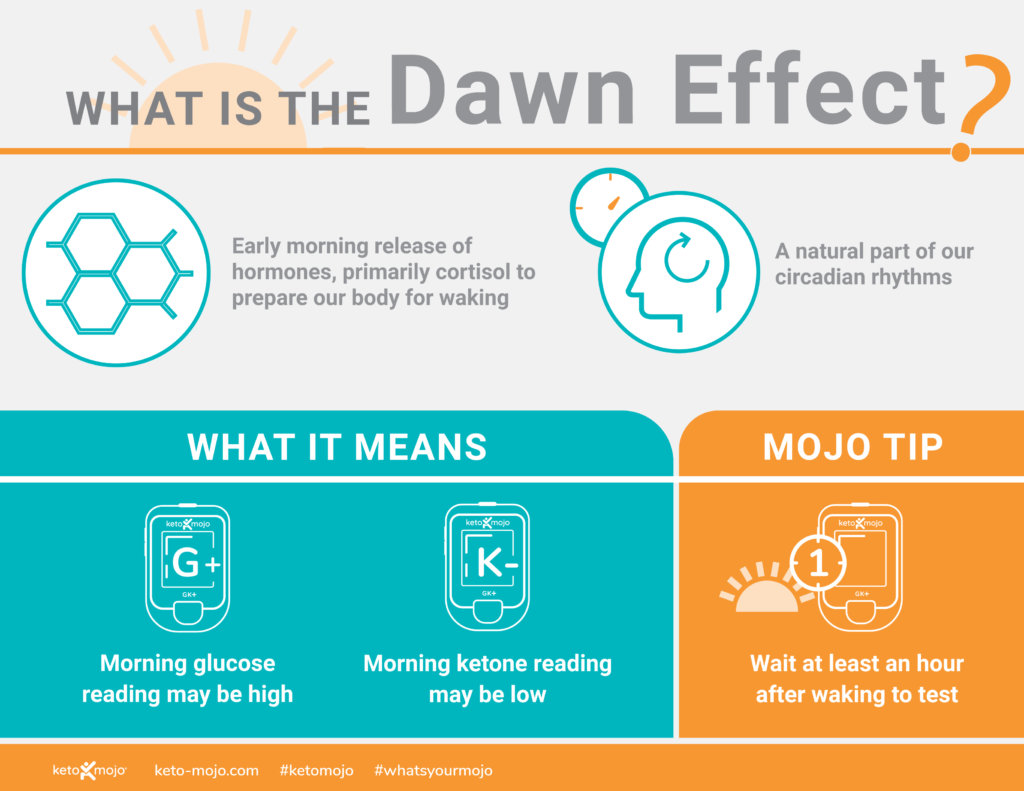UPDATED BY FRANZISKA SPRITZLER, RD, CDCES
You wake up, stretch, and reach for your ketone meter, excited to see where your levels are first thing in the morning. But to your surprise, your blood ketones are lower than expected, while your blood glucose is higher. You stuck to your keto diet the night before, went to bed in ketosis, and haven’t eaten since. Why?
Don’t worry. It has nothing to do with what you have or haven’t done. What you’re experiencing is related to the “dawn phenomenon” or “dawn effect.”
What is the Dawn Phenomenon or Dawn Effect?
The dawn effect refers to a natural rise in blood glucose that occurs in the early morning hours, usually between 4 a.m. and 8 a.m., even after an overnight fast. This happens when the body releases counterregulatory hormones like cortisol, epinephrine, and norepinephrine to prepare for waking up. These hormones prompt the liver to release glucose into the bloodstream.
In people without diabetes, this glucose rise is typically balanced by a corresponding increase in insulin, keeping blood sugar levels stable. But in individuals with insulin resistance or diabetes — or potentially those following a ketogenic diet — this early morning rise in glucose can sometimes outpace the body’s ability to respond.
As a result, fasting blood glucose may be higher than expected, and ketone levels may be temporarily lower, since the body is prioritizing glucose for energy during this transition from sleep to wakefulness. For some people, the rise in morning blood glucose is noticeable; for others, it’s minimal. And while it can be frustrating to follow a keto lifestyle and wake up to unexpectedly low ketone readings, it’s a normal response and doesn’t necessarily mean you’re off track.
If you test ketones first thing after waking up, you may very likely see lower readings as a result of the dawn effect This is why it’s best to wait an hour or two after waking up for a more accurate picture of baseline morning ketosis.

Want more details on the dawn phenomenon? Watch our video to learn more about the dawn phenomenon or read about the science behind the dawn effect.


